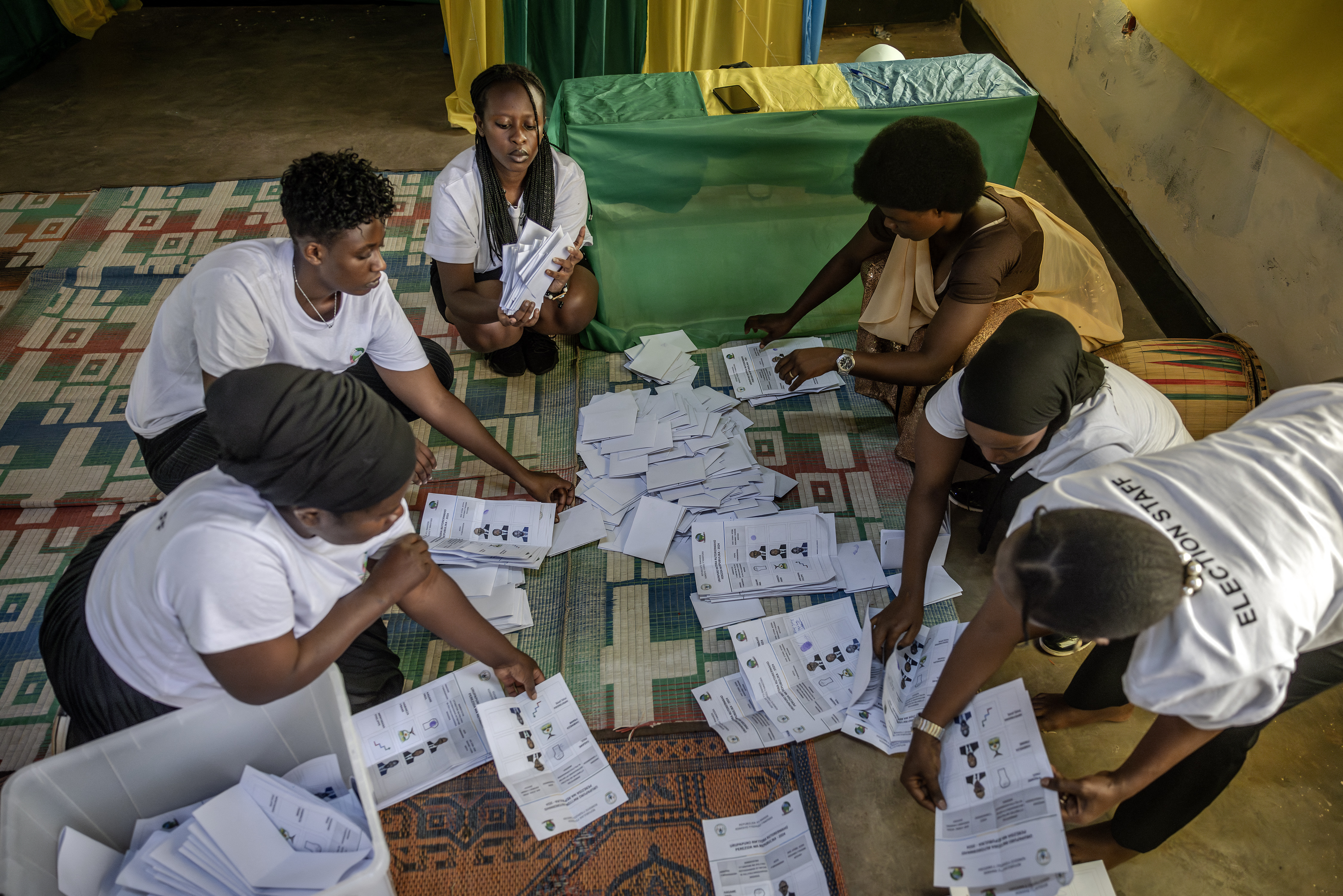
KIGALI - Rwandans lined up on Monday to elect their next president, with early results putting incumbent Paul Kagame in the lead in a vote widely expected to give him a fourth term and extend his near quarter century in charge of the East African country.
The two men standing against him - Frank Habineza from the Democratic Green Party and independent Philippe Mpayimana - said they were hoping to make some progress, but analysts and rights groups said Kagame's overwhelming victory was all but certain.
ALSO READ: Rwandans vote in election expected to extend Kagame's rule
Kagame, who got more than 93 percent of the vote at the last three elections, won praise from Western and regional leaders at the time for helping end the 1994 genocide in Rwanda. The US State Department and others have also lauded the development of the economy.
Rwandans are also voting on Monday for members of the lower house of parliament and provisional results are expected by July 20. Polling stations were open until 3 pm (1300 GMT).
The overall voter turnout was 98 percent of the 9 million registered voters, Oda Gasinzigwa, chair of the National Electoral Commission, said in a statement on the national broadcaster later on Monday evening.
Of 78.94 percent of the votes counted at about 2017 GMT, Kagame was ahead with 99.15 percent of the votes, data from the commission showed.
Campaign groups, including Human Rights Watch, have accused authorities of cracking down on journalists, the opposition and civil society groups before the vote. Kagame has dismissed such accusations and described himself as the stability candidate.
Progress in developing national and local government institutions, economic development, maintaining security (and) promoting reconciliation.
The US State Department
His reelection could signal a measure of political stability for his corner of a fractured region, but also continued global scrutiny, given the accusations of abuses and of supporting rebels in neighbouring Democratic Republic of Congo - a charge he has also denied.
Earlier on Monday, at the Rwandexco polling centre in the capital Kigali, Barimukije Pheneas said he would vote for the 66-year-old incumbent.
READ MORE: Campaigns begin ahead of presidential, legislative polls in Rwanda
"We voted smoothly without any crowding, and we are happy," Pheneas said. "I voted for Paul Kagame because he has achieved a lot for us; he united us."
Motorcycle taxi driver Karangwa Vedaste said the voting process was calm and peaceful, but declined to say who he had chosen.
"I voted for a leader I trust. The one I voted for is a secret in my heart. We will share it when he wins," Vedaste said.

The electoral commission barred eight other candidates, including Kagame's most vocal critics, from running, citing a range of reasons including missing and incomplete registration documents.
ALSO READ: Stampede at political rally leaves 1 dead, 37 injured in western Rwanda
Democratic Green Party candidate Habineza, whose deputy was found dead and almost beheaded in the run-up to the 2010 vote, said there had been signs of progress.
"We toured the entire country, and wherever we went, people welcomed us warmly. They gave us gifts and assured us they would vote for us," Habineza said after voting.
"We have to maintain this momentum and not regress," he added.
"We are confident, each of us is confident, it's half and half," independent presidential candidate Mpayimana told journalists after casting his vote.
READ MORE: Kagame: Rwanda wants to keep strong bilateral relations with China
The US State Department says on its website Rwanda has made "progress in developing national and local government institutions, economic development, maintaining security (and) promoting reconciliation".
It also says it backs Rwanda efforts to "increase democratic participation (and) enhance respect for civil and political rights".


